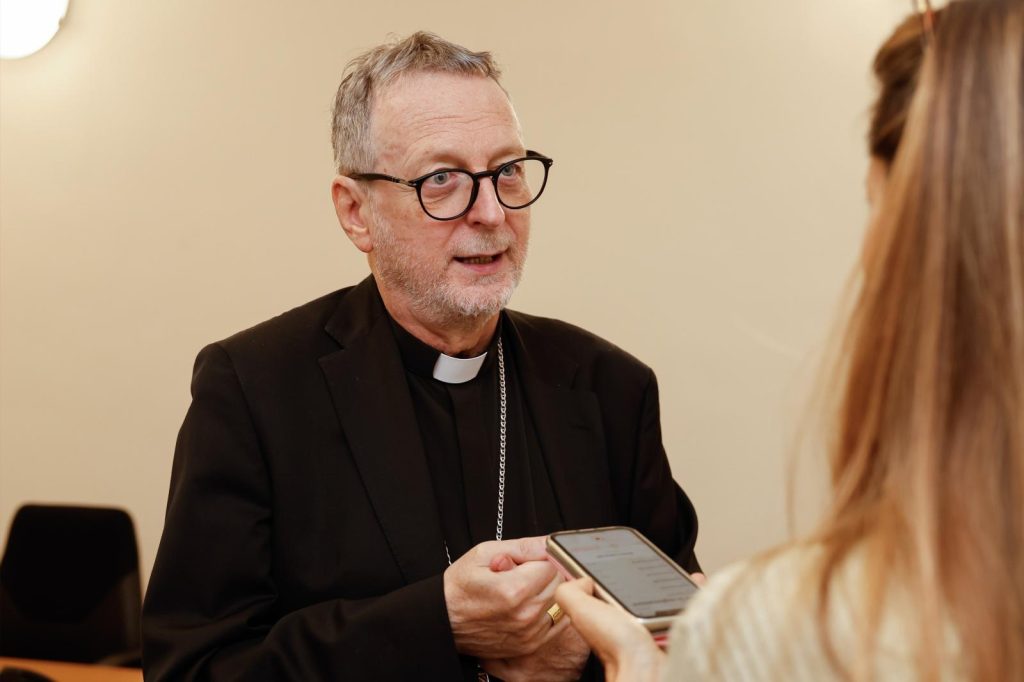
VATICAN CITY. When it comes to the war on Ukraine, the Vatican’s approach is “absolutely nonpolitical. It is ‘What would Jesus do if He were us?’” said Cardinal-designate Claudio Gugerotti, prefect of the Dicastery for the Eastern Churches.
“All the initiatives of the Holy See are an attempt to answer this question” while also gauging how suitable or not those choices are “according to the sensitivities” of each community, he told reporters on the eve of being made a cardinal Sept. 30.
The Italian-born prelate, who will celebrate his 68th birthday Oct. 7, has years of experience working closely with Eastern Catholics and Orthodox leaders and faithful, especially in the Caucasus region and Eastern Europe, where he has served as a papal nuncio to Georgia, Armenia, Azerbaijan, Belarus and Ukraine.
Reporters asked him about the current upheaval in Nagorno-Karabakh, which is recognised internationally as part of Azerbaijan but had been controlled by Armenia for more than 30 years until Azerbaijan troops launched an offensive Sept. 19. Tens of thousands of ethnic Armenians have fled the once separatist enclave – more than half of its Armenian population – sparking concerns of ethnic cleansing.
Cardinal-designate Gugerotti said he served as papal representative to the long feuding nations of Armenia and Azerbaijan simultaneously and he acted as an intermediary, communicated between the two sides when there otherwise would have been no other channel to do so, and facilitated a visit by the Armenian patriarch to Azerbaijan.
“It’s all a matter of relationships between people. If people talk to each other, if powerful people don’t simply make political calculations about what suits me or how I can take revenge, all problems are solvable,” he said.
On the other hand, he said, problems can’t be solved if “the now-general norm in today’s world is applied,” that is, doing what reaps bigger gains in the field of public opinion.
“Unfortunately, this is a very distressing problem,” he said, because the Armenians have a “very ancient presence” in those lands and because of the horrifying nature of their exodus.
However, “there is a lot in common” between these two peoples, he said. “If someone knew this historical and cultural component, maybe they could also find a language, a way to make them dialogue.”
“Could that someone be the Vatican? Would the Vatican be open to this?” a reporter asked.
“The Vatican is open to everything,” he said. It is so open, there blows “one big air current. We have drafts everywhere because we never close the doors.”
After years as an official there, the cardinal-designate now heads the Vatican dicastery that assists all the Eastern Catholic churches – most of which are based in the Middle East, North Africa and Eastern Europe, including Ukraine – as well as the Latin-rite church across North Africa and the Middle East.
Noting the great hardship these regions have been experiencing, he was asked what is his greatest hope for the people there.
“That these churches discover the strength of faith alongside that of their national identity. This is an important aspect because faith allows individuals to break away from political logic by doing the impossible,” he said.









